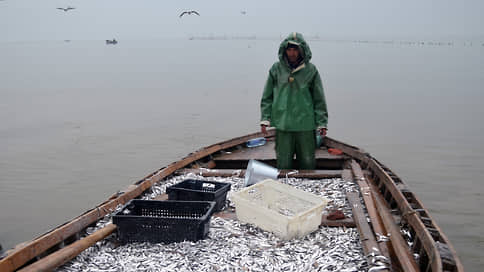Russian authorities to discuss with Mozambican regulators the possibility of reducing duties for fish exporters
[ad_1]

The Russian authorities intend to start negotiations with the regulators of Mozambique on the reduction of import duties for fishermen from the Russian Federation, which now reach 20%. This should expand markets for companies in Africa, which import fish by a total of $6 billion a year, and help diversify the risks of a possible complication of exports to the EU. So far, sending large volumes of Russian catch to Africa has been hampered not only by high duties, but also by serious competition, a shortage of refrigeration capacity, and complex industry regulation in many African countries.
As Kommersant was told in the Federal Agency for Fisheries, on July 27-28, as part of the Russia-Africa summit, the Russian side plans to discuss with Mozambican regulators the possibility of revising duties for fish exporters from the Russian Federation, which amount to 20%. In December 2022, the Rosselkhoznadzor already agreed on the shipment of fish and seafood to Mozambique. But the size of the duty, the department says, “restrains companies from delivering to this country.” Now the share of fish in the total volume of Russian food exports to Mozambique is insignificant, market participants interviewed by Kommersant confirm.
By the end of 2023, Mozambique will import 23 thousand tons of sea and ocean fish, and by 2027 – 27.09 thousand tons, mainly from Japan and Norway, the UN Food and Agriculture Organization (FAO) predicts. According to Agroexport, fish catch in Mozambique in 2022 increased by 7.2% year-on-year, to 475.6 thousand tons.
In other countries of Africa, despite the duties there on the import of fish at 19-21%, supplies are going on. The current volume of exports in this area as a whole is 70-100 thousand tons per year, the Federal Agency for Fisheries notes. For example, from the Far East, herring and mackerel are delivered to Cameroon, Nigeria, Côte d’Ivoire, Burkina Faso, in South Africa – Ivasi for canned food. The Association of Fisheries Enterprises of Primorye confirmed to Kommersant that a number of companies send herring to Africa, but it was difficult to name the volumes.
If problems are solved, including with duties, the volume of exports, according to German Zverev, President of the All-Russian Association of Fisheries (VARPE), may increase by an additional 150,000 tons, or about $500 million a year. Now this amount, according to various sources, is $300-330 million per year, about 8% of the total imports of the entire continent. With the planned increase in supplies, the share of the Russian Federation may increase to 14%, or $830 million.
In Africa, now only Nigeria is a major buyer of fish from Russia, says Ilya Bereznyuk, managing partner of Agro & Food Communications. According to him, deliveries to Côte d’Ivoire began during the pandemic, where part of the volumes that could not be delivered to China due to the closure of a number of local ports were redirected from the Russian Federation. A Kommersant source in the industry says that Africa is seen as a market for diversifying supplies to Europe. The EU sanctions did not affect fish, but market participants fear difficulties, although in 2022 the export of Russian products to the region increased by 57.6%, to €940 million (see Kommersant on March 22).
But there are also difficulties in Africa. One of the problems is fierce competition from China, the US and Norway, which have long been working on the continent, experts warn. According to WARPE, since the beginning of the year alone, for example, about 27,000 frozen Norwegian herring have been delivered to Egypt, which is 69% of Norway’s total fish exports.
Another challenge is tighter regulation. So, in Nigeria, according to the head of the Dobroflot Group of Companies Alexander Efremov, the authorities require canned food exporters to localize production. But this process is complicated by the shortage of refrigeration capacities in many African countries, which significantly narrows exports, says a Kommersant source in the industry. To solve the problem, large fish exporters, including China, the United States and Norway, are investing in the development of local infrastructure, says Ilya Bereznyuk. Although he acknowledges the high risks of such investments.
The Federal Agency for Fishery agrees that the access of non-residents to the markets of a number of African countries is seriously complicated. For example, in Mauritania, the crews of foreign trawlers fishing in the country’s exclusive economic zone must consist of 60% local citizens. In Namibia, foreign players need to transfer 51% in a local legal entity to local companies.
[ad_2]
Source link





